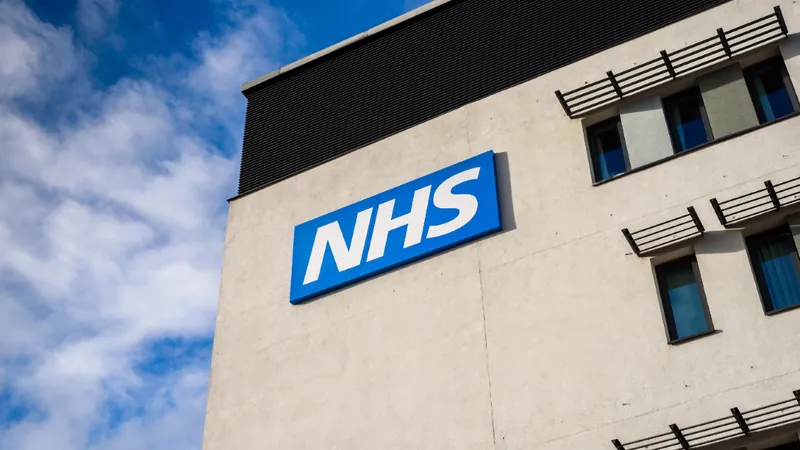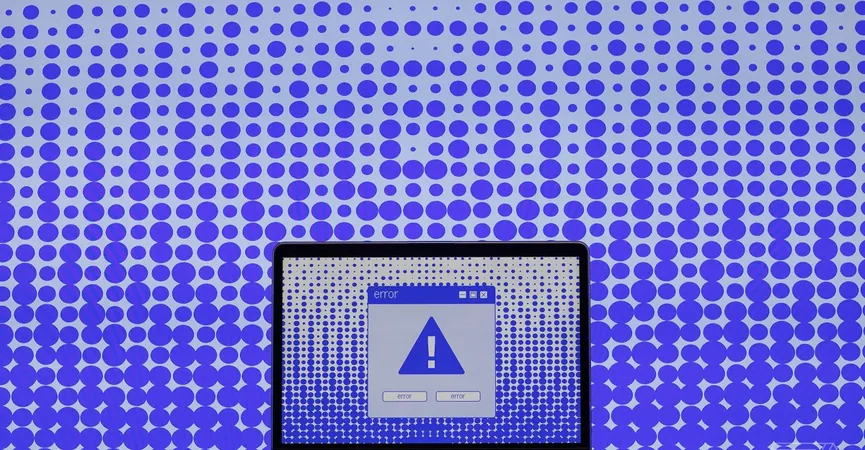
Is the NHS Ready for a Single Health Record? Experts Weigh In on Data Security Risks
2025-07-03
Author: Mei
The Push for a Unified Digital Patient Record
As the UK Government gears up for a groundbreaking shift towards a single health record database, experts are raising critical concerns about securing patient data. The NHS aims to revolutionize healthcare with the 'Data Saves Lives' initiative, designed to consolidate patient medical histories into one centralized system accessible to clinicians and researchers alike.
Experts Weigh the Pros and Cons
At a recent Westminster Health Forum session, healthcare specialists gathered to discuss the monumental task of creating this single registry for patient data. While the potential benefits for all parties involved are clear, the complexity and risks associated with data security cannot be overlooked.
Timely Access for Clinicians and Patients
Dr. Nicola Byrne, the National Data Guardian for health and social care in England, highlighted the importance of timely access to data for clinicians, as well as allowing patients to view their complete medical information. "Ensuring clinicians have the right information when it’s needed is crucial for patient care," she stated.
Benefits for Research and Patient Care
Emily Jefferson from Health Data Research (HDR) UK emphasized that a centralized system would significantly benefit medical research. With a new £600m Health Data Research Service funded by the Wellcome Trust, researchers can leverage securely linked data to save lives and enhance healthcare services.
A Call for Clear Patient Benefits
But there’s a catch—patients must clearly understand the benefits of sharing their health data at such a scale. Jefferson stressed, "Every project needs to show measurable improvements in patient care to justify data sharing."
The Cybersecurity Dilemma
However, the proposal isn't without its detractors. Professor Joe McDonald, medical director of the Access Group, expressed skepticism about the single national record, calling it a "cyber hazard visible from space." He argued for a more regional approach, utilizing trusted research environments instead.
Ensuring Robust Data Security
Bruno Botelho, digital operations director at Chelsea and Westminster Hospital NHS Foundation Trust, echoed these concerns, noting that cyber threats are evolving and emphasizing the critical need for collaboration to enhance data security.
The Richness of GP Data and Its Protection
Katie Bramall-Stainer, chair of the GPs Committee for the BMA, pointed out that GP records represent one of the most comprehensive medical data sets globally, which raises the stakes for their protection. She insisted that if such a system is implemented, it must come with watertight governance to ensure data is used strictly for patient care.
The Challenge of Implementation
Dr. Wareed Alenaini highlighted another layer of complexity: the current fragmented nature of NHS data access. With different trusts operating on various systems and standards, the road to a unified health record presents significant hurdles that must be effectively managed.
Conclusion: Do We Want a Unified Health Record?
As the NHS explores the ambitious path toward a unified health record, the balance between improved patient care and the safeguarding of sensitive data becomes ever more critical. With experts divided on the approach, the ultimate question remains: Is the NHS prepared to embark on this transformative journey?




 Brasil (PT)
Brasil (PT)
 Canada (EN)
Canada (EN)
 Chile (ES)
Chile (ES)
 Česko (CS)
Česko (CS)
 대한민국 (KO)
대한민국 (KO)
 España (ES)
España (ES)
 France (FR)
France (FR)
 Hong Kong (EN)
Hong Kong (EN)
 Italia (IT)
Italia (IT)
 日本 (JA)
日本 (JA)
 Magyarország (HU)
Magyarország (HU)
 Norge (NO)
Norge (NO)
 Polska (PL)
Polska (PL)
 Schweiz (DE)
Schweiz (DE)
 Singapore (EN)
Singapore (EN)
 Sverige (SV)
Sverige (SV)
 Suomi (FI)
Suomi (FI)
 Türkiye (TR)
Türkiye (TR)
 الإمارات العربية المتحدة (AR)
الإمارات العربية المتحدة (AR)